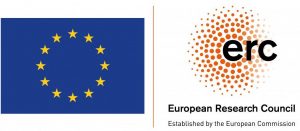
📢 New Publication about Data-driven campaigning by Rachel Gibson
Our own Rachel Gibson has written an article for the journal Political Communication, which is now available online. This article “Data-driven campaigning as a disruptive force” is available green open access through our own UoM research repository (follow this link). Please find the introduction of this paper below.
Concern about whether contemporary societies face a “crisis of democracy” has grown in recent years (Kreisi, 2020). While the severity of the malaise may be disputed, there is growing suspicion that the increasing reliance of political actors on digital technology and particularly new “data driven” campaign techniques may be contributing to growth in citizen disengagement and discontent (Bennett & Lyon, 2019). The grounds for this claim are essentially three-fold. First, data-driven campaigns promote a more individualized form of political targeting that allows parties to narrow their appeals to the most persuadable and “perceived” sections of the electorate (Hersh, 2015), and thereby effectively bypass those harder to reach groups of under-mobilized voters, i.e. the young, the disinterested, and the marginalized. Furthermore, through these micro- targeting techniques, campaigners can more accurately target demobilizing messages at opposition supporters to dissuade them from turning out. Second, social media platforms provide powerful new channels for the release of automated, anonymized, false information or “computational propaganda” by rogue actors, both foreign and domestic. These disinformation campaigns are explicitly designed to mislead and confuse voters and are escalating in scale and sophistication (Woolley & Howard, 2018). Finally, campaigns themselves are now increasingly reliant on the “wisdom” of AI and computer modeling for basic tasks such as resource allocation and message construction. This shift creates a new technological elite at the heart of campaigns that operate in an opaque and unaccountable manner (Tufekci, 2014). The combined impact of these developments is a further shrinking of the public sphere and decline in the representativeness and accountability of democratic institutions. Voters who do actually make it the polls face the increasingly difficult task of making an informed choice, as they struggle to discern both the accuracy and source of the political content they encounter online.Given the potentially serious harms that DDC presents to democracy, systematic investigation of its adoption and usage across countries is now a priority for academic research. This is precisely the goal of a new ERC funded project, Digital Campaigning and Electoral Democracy (DiCED). In this short essay we highlight in brief, the key questions the project will pursue and that we urge the wider literature to explore.



0 Comments